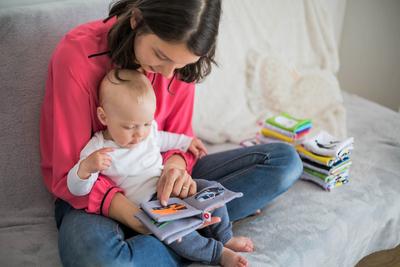Your emotions are a source of wisdom and power
20 February 2023 • 5 mins to read
For a change, I will start my blog post with a small poem by Rumi.
The Guest House
This being human is a guest house.
Every morning a new arrival.
A joy, a depression, a meanness,
some momentary awareness comes
as an unexpected visitor.
Welcome and entertain them all!
Even if they're a crowd of sorrows,
who violently sweep your house empty of its furniture,
still, treat each guest honorably.
He may be clearing you out
for some new delight.
The dark thought, the shame, the malice,
meet them at the door laughing,
and invite them in.
Be grateful for whoever comes,
because each has been sent
as a guide from beyond.
I love the way Rumi offers his perspective on our ever-changing emotions and I find the last part especially beautiful: “Be grateful for whoever comes, because each has been sent as a guide from beyond.”
The emotions are the language of our body to tell us what is truly happening within us. Our emotions are not good or bad. Our mind is interpreting them as positive or negative, but with a little bit of work on ourselves we will have a choice on how we see our emotions and how we want to react to them.
I was always afraid of my anger and I never really dared to express it, because I thought that it is destructive, too dark and I didn’t know if I could get back control over myself. More I was pushing it down, scarier it became to look at it.
In my early 30s I’ve found enough courage to go through an extensive self-discovery journey to work with my anger. I found it truly liberating. This was my gateway to my inner strength, to my ability to say “no” and to my capacity to set clear, healthy boundaries. At that point, I thought that it was just me, not knowing how to express and deal with my strong feelings.
Only when I became a mom for the first time I noticed the wide-spread discomfort people had around “negative” emotions.
When my baby started crying I had the impulse to give him anything, so that he goes back to his normal calm state. I wanted him to be happy. I like to think that this comes from a natural instinct, all parents share, which could still be the case. However, what was also present was that I wanted my baby to stop crying because I didn’t know how to be around his strong feelings – anger, disappointment, sadness…
The truth is that I didn’t trust his emotions, nor that he could face and deal them. I was uncomfortable with him expressing them. I was feeling the need to calm him down, so that I am “in control” again.
What has hit me in these early months of parenthood, was that everyone around me would react to his crying in a similar way (including strangers): they would ask me if he had a pacifier, would try to distract him with a shiny object or by making a weird face, they would offer him something to eat or to drink….
I am grateful for Janet Lansbury for introducing me to respectful parenting and for giving me a new perspective on how to welcome and embrace my son’s emotions, so that I raise a confident and an authentic human being.
With the new insights from the parenting approach I’ve chosen, I’ve realized that when the adults are not comfortable with the emotions, the message they are sending to their children is that their emotions are bad, that it’s not OK to express them, that it’s not safe to have them at all. The child gets the feeling that “something is wrong with me for having these emotions and I better hide them”.
This is why so many of us choose to ignore or suppress our emotions. No one thought us how to deal with our emotions and how to use their wisdom and energetic charge in a healthy, creative way!
This is also one of the obstacles of unfolding the potential of our femininity!
The fact that we don’t give space to our emotions, doesn’t make them disappear. They continue to influence our state of mind, our decision making process and our behaviour. So better to shed some light there and to bring some curiosity into what caused an emotion and what it wants to tell us.
So how do we do that:
- Detect the primal emotion you have felt.
The connection between our emotions and our thoughts is very tight. Our thoughts trigger emotions and our emotions trigger thoughts, creating a circle of positivity or negativity.
When we experience an emotion, our brain quickly links it to a past instance we had a similar emotion. Our mind creates a story which transforms the original emotion into another one.
Let me give you an example: Your partner has promised you that he will be home early and that he will prepare the dinner for the two of you. However, there is a problem in the office and he needs to solve it before he can leave. As a result of it, he comes home late. You are sad and disappointed, because you were looking forward to a nice quality time together. Your mind starts spinning all the times he said something and didn’t follow through for whatever reason. You hear in your head things like “Your work is more important than me!”, “I am your last priority!”, “I am not just at your disposal for whenever you feel like having time with me”, “Who do you think you are?”, “I deserve a better attitude!”, “Is this how you are reciprocating my love and attention for you?”…. Because of these thoughts, your emotions change from sadness and disappointment to frustration, righteousness and anger.
What can help here is a gentle self-inquiry:
- What do I feel? (frustration, righteousness and anger)
- What has triggered these emotions? (I felt disrespected and not seen)
- How do I really feel about it not being seen? (it hurts me)
- Practice expressing your feelings.
It is not always easy, but with daily practice it gets more natural and less intimidating.
After you have detected the original emotion, just share “I felt hurt/sad that you were not on time. I was looking forward to an evening together”. Your vulnerability and authenticity connects you deeper with the person (especially when you are sharing how you are feeling, instead of attacking him with the words your mind was spinning around). - Free the emotion from your body. If it is hard for you to put aside the story around the emotion and to not villainize the other person, try sticking to the facts. Stripe the situation from all details, adjectives and emotions and tell to yourself just the bare facts. Then ask yourself:
- What do I feel?
- Where do I feel it in my body? Focus your attention and breathe into the part of your body where you feel the emotion?
- Physically in my body, how do I experience this sensation? What is the essence of the sensation? Is it something hard, or maybe something soft, does it have a color, is it hot or cold, what is its shape?
- Is there a movement my body wants to make while my full attention is in my body and in the physical sensation I have from the emotion
This way, we are freeing up the emotion not through the mind, but through the energy in the body, where actually the emotion is.
Get a new perspective. We do experience pain through other people, but their role is not to hurt us, but to show us what hurts inside of us. So, it is key when we work with our emotions to stay away from the story in our head, from blaming, from taking things personally, from being in the role of the victim… none of this helps us liberate our body of the emotion and just gets us further stuck in toxic thoughts and feelings.
Heal your wounds. Especially the most triggering emotions are rooted in our childhood. To break free and to heal the old wounds we need to learn self-soothing techniques and practice connecting to our inner child. Only this way, we can enhance our emotional resilience and build deeper and more conscious relationships.
Our emotions are deep and complex, but the moment we learn to identify them and to express them, they turn into source of wisdom and power.
Related blogs

The Hidden Cost of Staying Home Too Long
How going back to work can save your confidence, your relationship, and your kids

Money - your friend or your enemy?
The path to abundance & taking charge of your finances